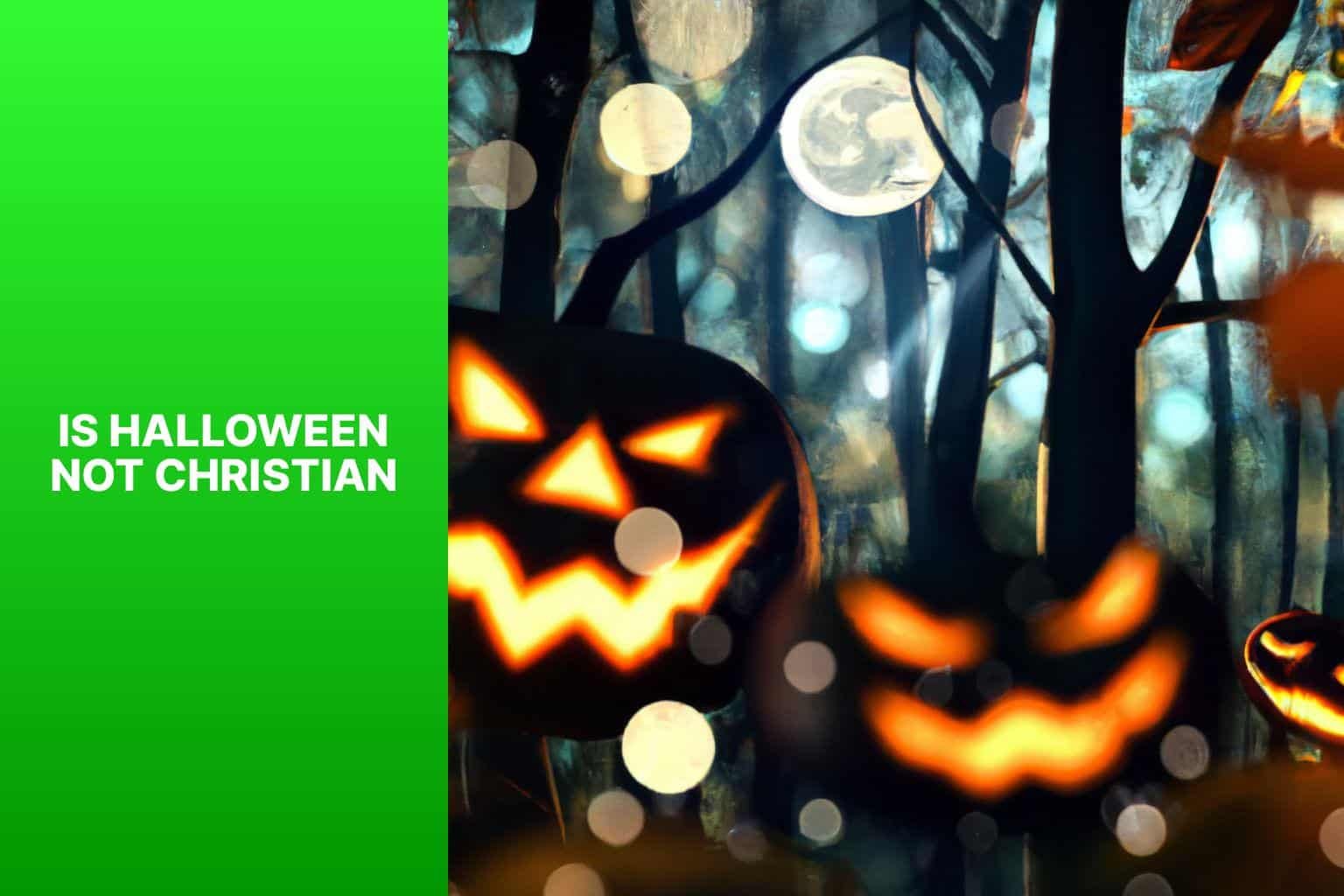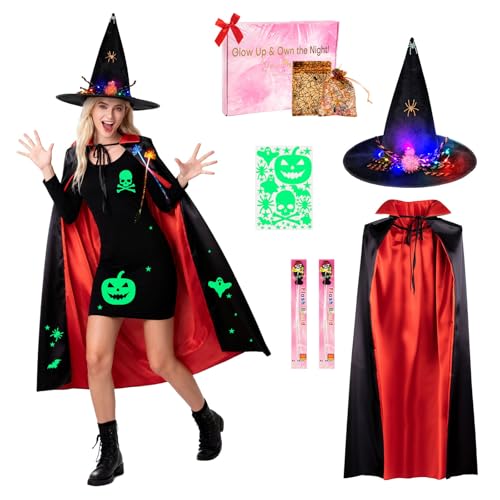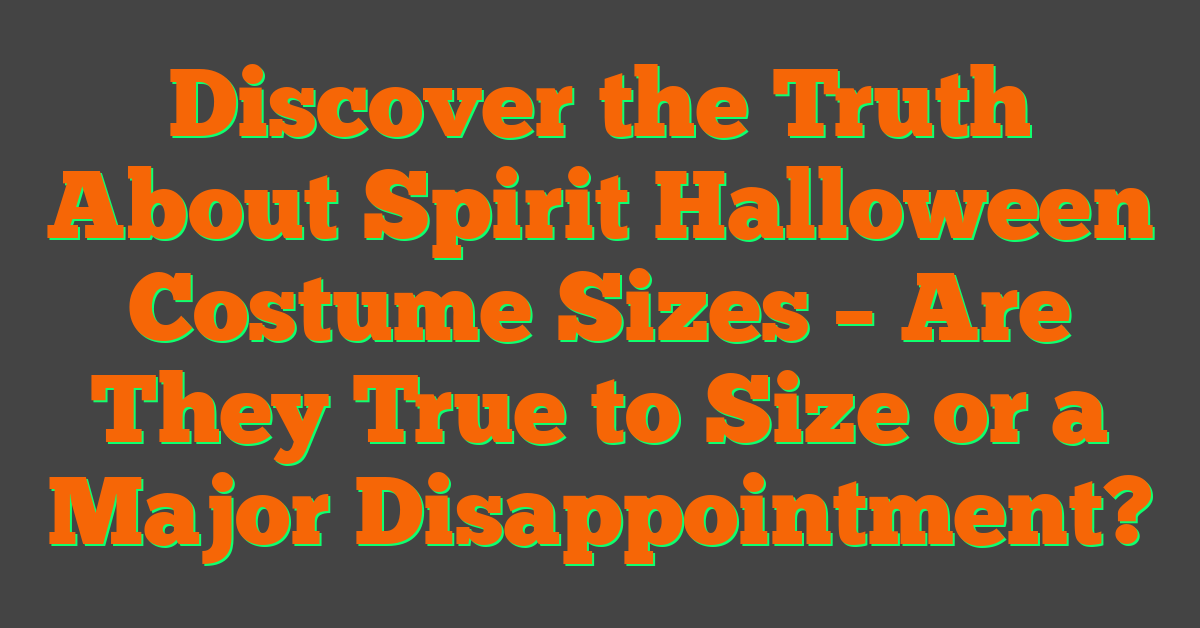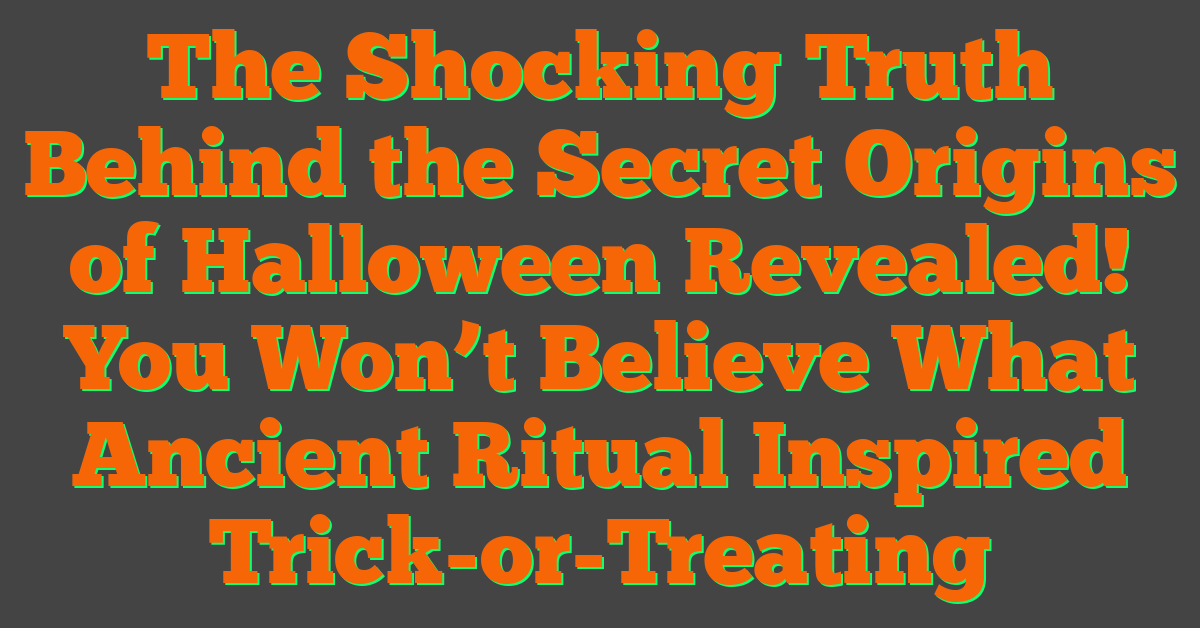Halloween, with its spooky costumes, haunted houses, and trick-or-treating, has been a popular holiday celebrated around the world. There has been a long-standing debate about whether Halloween is considered Christian or not. To understand this, we need to delve into the origins and traditions associated with the holiday.
The origins of Halloween can be traced back to a Celtic festival known as Samhain. This festival marked the end of the harvest season and the beginning of winter, and it was believed that on this day, the boundary between the living and the dead was blurred. As the influence of Christianity spread, the practices of Samhain became intertwined with Christian traditions.
In Christian tradition, Halloween is closely tied to two significant days: All Saints’ Day and All Souls’ Day. All Saints’ Day, observed on November 1st, is a day to honor the saints and martyrs of the Christian faith. All Souls’ Day, observed on November 2nd, is a day to remember and pray for the souls of the departed.
Christian perspectives on Halloween vary. Some Christians view Halloween as a harmless celebration and an opportunity to connect with the community. They focus on the fun and social aspects of the holiday, while incorporating their faith into the festivities. On the other hand, some Christians hold oppositional views, associating Halloween with pagan customs, witchcraft, and the glorification of darkness.
It is important to debunk certain myths surrounding Halloween in Christianity. Halloween is often wrongly accused of being linked to Satanism and witchcraft. These accusations are based on misconceptions and exaggerations. Similarly, the connection between Halloween and paganism is often overemphasized, as many of the pagan practices have evolved over time and have been replaced with more secular and cultural elements.
For Christians who are unsure about how to approach Halloween, there are suggestions to consider. One approach is to celebrate Halloween with a Christian focus by incorporating faith-based activities like prayer, Bible readings, or attending church events. Another option is to explore alternative celebrations that align more closely with Christian values, such as hosting a harvest party or organizing community service projects.
Key takeaway:
- Halloween’s origins are rooted in both Celtic and Christian traditions: The holiday’s meaning and practices have evolved over time, incorporating elements from the Celtic Festival of Samhain and Christian observances of All Saints’ Day and All Souls’ Day.
- Christian perspectives on Halloween vary: Some Christians support the celebration, viewing it as an opportunity to focus on Christian values and connect with community, while others oppose it based on concerns regarding alleged connections to Satanism, witchcraft, and paganism.
- Christians have different approaches to Halloween: Suggestions for Christians include celebrating with a Christian focus, emphasizing the positive aspects of the holiday, exploring alternative celebrations that align with their beliefs, and debunking myths about Halloween’s association with satanic practices or paganism.
Exploring the meaning of Halloween
Halloween has cultural and historical significance. It has roots in ancient Celtic harvest festivals and is connected to the Christian tradition. These different perspectives shed light on the meaning of the holiday.
Halloween comes from the Celtic Festival of Samhain, where Celts celebrated the end of the harvest season and the beginning of winter. They believed that evil spirits roamed the earth on this night, making it a bad time. With the influence of Christian practices, Pope Gregory III declared November 1st as All Saints’ Day, also called All Hallows’ Day. The evening before, October 31st, became known as All Hallows’ Eve, or Halloween.
Understanding Halloween means recognizing the different views among Christian communities. Some Christians celebrate Halloween to have fun with their families and use it as a way to discuss biblical principles. Others have opposing views and point out the pagan origins, demonic powers, and harmful influences.
Exploring the meaning of Halloween leads to conversations about other celebrations for Christians who want a godly environment. It’s important to debunk myths about Halloween, addressing accusations of Satanism and witchcraft while considering its connection to pagan practices. This exploration helps Christians make informed decisions about celebrating Halloween while staying true to their faith.
Tracing the origins of Halloween
The origins of Halloween can be traced back to ancient Celtic harvest festivals, specifically the festival of Samhain. On October 31st, the Celts believed the boundary between the living and the dead was blurred and that spirits would return to Earth to cause mischief. To ward off these spirits, the Celts would light bonfires and wear costumes.
Christian practices influenced Halloween with the introduction of All Saints’ Day and All Souls’ Day. In the 8th century, Pope Gregory III designated November 1st as the day to honor all saints and martyrs, followed by All Souls’ Day on November 2nd to pray for the departed souls. These Christian observances gradually merged with Celtic traditions, leading to the Halloween celebration we know today.
Tracing the origins of Halloween helps us understand its historical and cultural roots. It reveals how different traditions and beliefs have intertwined over time. Knowing its origins allows for deeper conversations and a greater appreciation of the diverse perspectives surrounding Halloween.
In my hometown, there is a community that celebrates Halloween with a “Trick-or-Treat for a Cause” event. Instead of solely focusing on traditional aspects, they use Halloween to raise awareness and support local charities. This showcases how Halloween can promote a sense of community and encourage acts of kindness and generosity.
Celtic Festival of Samhain
The Celtic Festival of Samhain is significant in the history of Halloween. Here are key facts about this ancient festival:
– Samhain was a Celtic festival celebrated on October 31st.
– It marked the end of the harvest season and the beginning of winter in Celtic culture.
– The festival was associated with the belief that on Samhain night, the boundary between the living and the dead was blurred, allowing spirits to roam freely.
– Celtic people believed that during Samhain, the spirits of the deceased would visit their former homes, and they would set out offerings to appease these spirits.
– Bonfires were essential in Samhain celebrations, symbolizing both warmth and protection during the winter months and the driving away of malevolent spirits.
– Costumes were worn during Samhain to disguise oneself from harmful spirits or to imitate and honor the spirits.
– Samhain rituals included divination practices like apple bobbing and mirror-gazing for insights into the future.
– The influence of Samhain on the development of Halloween can be seen in the observance of All Hallows’ Eve on October 31st, followed by All Saints’ Day on November 1st.
Understanding the significance of the Celtic Festival of Samhain helps illuminate the historical roots and traditions of Halloween.
Influence of Christian Practices
The influence of Christian practices on Halloween has greatly shaped how the holiday is observed. As Christianity spread across Europe, Christian missionaries purposefully incorporated local traditions into their new faith. A notable example is the establishment of All Saints’ Day by Pope Gregory III in the eighth century. This day was intended to honor Christian saints and martyrs and was strategically placed on November 1st to coincide with the pagan festival of Samhain.
By aligning All Saints’ Day with Samhain, Christian leaders aimed to redirect attention away from pagan practices and offer a Christian alternative. The purpose was to remember loved ones who had passed away and honor the saints rather than engaging in unholy activities associated with evil spirits.
The influence of Christian practices on Halloween led to the introduction of observances like All Souls’ Day, dedicated to praying for the souls of the departed. These Christian traditions have greatly influenced the cultural practices and rituals associated with Halloween, providing believers with an opportunity to engage in faith-aligned activities.
A true story exemplifying the influence of Christian practices on Halloween is the organization of a “Redemption Celebration” by a church community on October 31st. Instead of focusing on dark and troubling aspects, this event creates a Godly environment where families can come together to celebrate the redeeming power of Christ. The festivities include games, music, and a testimony session, allowing both believers and non-believers to have meaningful conversations about faith. This alternative celebration has become a positive and uplifting experience for the Christian community, highlighting the true meaning of redemption and offering an alternative perspective on Halloween.
Halloween in Christian Tradition
Discover the fascinating intertwining of Halloween and Christian tradition. Delving into the observance of All Saints’ Day and All Souls’ Day, we’ll unravel the significance and customs that have shaped the Christian approach to this spooky season. From solemn remembrances to spirited celebrations, this section unveils the diverse ways in which Halloween has become an integral part of the Christian faith. Uncover the rich tapestry of beliefs and rituals behind this captivating holiday.
Observance of All Saints’ Day
All Saints’ Day, also known as the Observance of All Saints’ Day, is celebrated annually on November 1st. This special day is dedicated to honoring both the known and unknown saints who have achieved eternal glory in Heaven.
The Observance of All Saints’ Day is an integral part of the liturgical calendar and is commemorated by various Christian denominations all around the world.
During this significant day, Christians come together in churches to participate in special worship services. They engage in prayer, hymn singing, and sincere contemplation of the lives of the saints. Through their examples of unwavering faith, these saints serve as a source of inspiration and guidance.
It is a time to remember and express gratitude for beloved individuals who have passed away and dedicated their lives to serving God.
The Observance of All Saints’ Day holds great importance as it emphasizes the belief in the unity of all believers, both on Earth and in Heaven. It serves as a joyful celebration of the triumph of Jesus Christ over sin and death, offering hope for eternal life to all who follow Him.
For Christians seeking suggestions on how to observe All Saints’ Day, there are several ways to do so. Attending worship services is one of the primary means to actively participate in the spiritual significance of the day. Reading and meditating on the lives of the saints can provide valuable insights and spiritual growth. Engaging in acts of kindness and service in memory of departed loved ones is also a meaningful way to commemorate their lives. Ultimately, this day presents an opportunity to deepen one’s faith and commitment, striving to lead a life that aligns with the values and virtues exhibited by the saints.
Observance of All Souls’ Day
The observance of All Souls’ Day is an important tradition in the Christian faith. Christians remember and pray for the souls of the faithful departed on this day.
On November 2nd, Christians gather in churches to offer prayers and special Masses for the deceased. They reflect on the souls of their loved ones and offer intercessory prayers for their salvation and eternal rest.
This practice is rooted in the belief in the communion of saints, which holds that the Church consists of the living, the souls in purgatory, and the saints in heaven. By praying for the souls in purgatory, Christians believe they can help them on their journey to heaven.
Observing All Souls’ Day is a reminder to pray for one another and to remember that death does not break the bond between the living and the deceased. It is an opportunity to honor the memory of loved ones and provide spiritual support.
Pro-tip: On All Souls’ Day, reach out to your loved ones and offer prayers for their souls. It is a meaningful way to express love and remembrance and continue the tradition of observing All Souls’ Day.
Christian Perspectives on Halloween
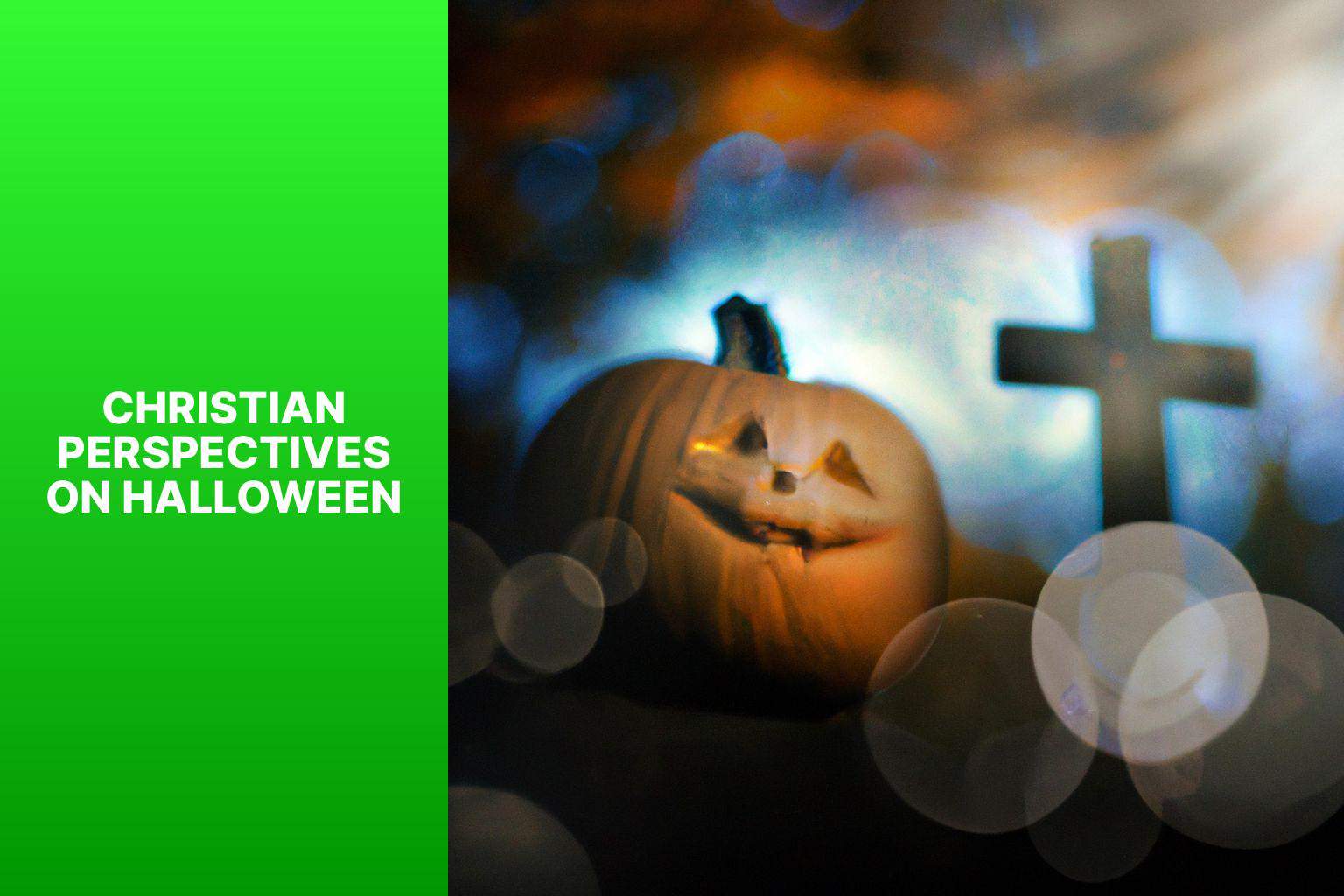
Photo Credits: Rickyshalloween.Com by Randy Moore
Christian Perspectives on Halloween are diverse, with some embracing its festive nature while others expressing opposition. In this section, we’ll explore the contrasting viewpoints surrounding this holiday within the Christian community. From supportive views that emphasize unity and community engagement to opposition views rooted in theological concerns, we’ll uncover the intriguing perspectives that shape Christians’ relationship with Halloween. Get ready to discover the wide spectrum of beliefs and opinions regarding this spooky season.
Supportive Views
Supportive Views are prevalent in the Christian community when it comes to Halloween. These views are grounded in the belief that the holiday can be transformed and utilized to showcase biblical principles. The emphasis is on creating an environment that is aligned with God’s teachings for the celebration.
Advocates argue that Halloween provides an avenue to engage in conversations about topics such as evil spirits and unholy practices. By discussing these issues, Christians can openly share their faith and demonstrate how Christ can redeem and enlighten.
There are Christians who assert that opposition to Halloween often arises from misunderstandings. They contend that Halloween presents an opportunity to show the Christian victory over demonic powers and fear.
Supportive views urge Christians to embrace Halloween in a way that aligns with their faith. This may involve hosting alternative celebrations like harvest festivals or organizing themed events that cultivate a positive atmosphere.
Opposition Views
Opposition views on Halloween in Christianity:
- Religious reasons: Some Christians oppose Halloween because they believe it has pagan origins and promotes unholy practices. They argue that the celebration is rooted in ancient Celtic harvest festivals and is associated with evil spirits.
- Harmful influences: Opponents of Halloween express concern about its toxic influences on Christian communities, especially on children. They believe that the celebration can expose people to troubling realities like witchcraft, violence, and fear.
- Biblical principles: Some Christians oppose Halloween based on their interpretation of biblical teachings. They argue that celebrating Halloween goes against the principles of righteousness and purity emphasized in the Bible.
- Alternative celebrations: Opponents suggest exploring celebrations that align more closely with Christian beliefs. They encourage fostering a Godly environment and engaging in activities that promote love, kindness, and redemption.
- Conversation starter: Opponents see Halloween as an opportunity to shed light on its controversies. They aim to spark conversations within Christian communities to promote a deeper understanding of the concerns raised.
Debunking Halloween Myths in Christianity
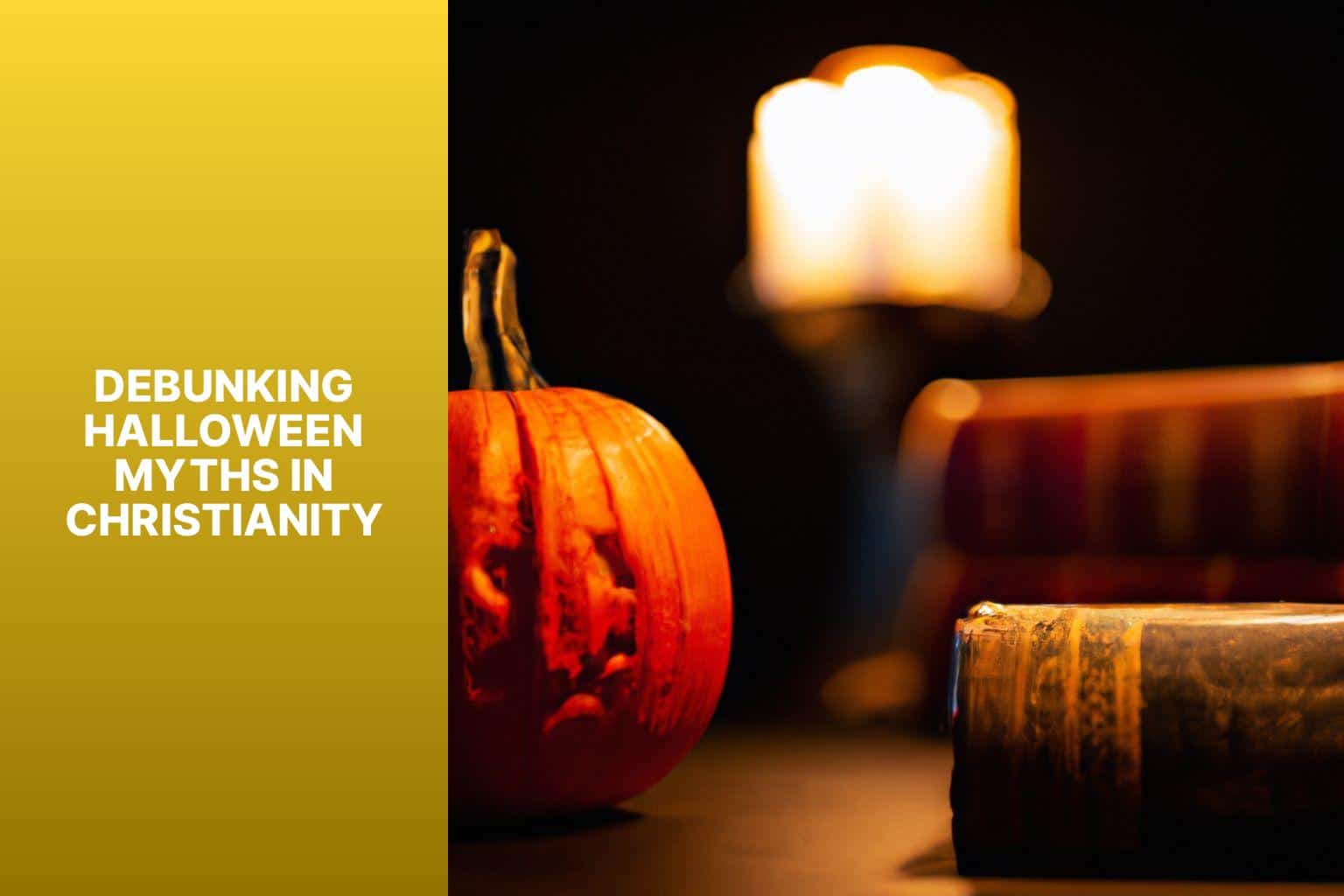
Photo Credits: Rickyshalloween.Com by Andrew Miller
Ready for some myth-busting? In this section, we’re diving deep into the world of Halloween and its connection to Christianity. We’ll address the wild allegations of Satanism and Witchcraft, separating fact from fiction. And of course, we’ll carefully examine the historical ties between Halloween and Paganism. Hang tight, because we’re about to debunk those Halloween myths once and for all!
Addressing Satanism and Witchcraft Allegations
In Christianity, it is important to address allegations of satanism and witchcraft associated with Halloween. Christians do not support or engage in satanic or witchcraft practices. The Bible condemns involvement with demonic powers or unholy practices. Christians are called to live according to biblical principles and be set apart from the world. Therefore, participating in activities that glorify evil spirits or engage in witchcraft goes against Christian beliefs.
It is crucial to shed light on the troubling realities of satanism and witchcraft, while recognizing that Halloween itself does not promote these practices. It is a cultural celebration that can be an opportunity for Christians to discuss their faith and share the message of redemption.
Christian communities can find alternative ways to celebrate Halloween by creating a Godly environment that focuses on the positive aspects of the holiday. This can include dressing up as biblical characters or organizing family-friendly events. By doing so, Christians can participate in the celebration without compromising their beliefs.
By addressing allegations of satanism and witchcraft, Christians can have meaningful discussions and educate others about the true meaning of Halloween. Halloween can be an opportunity to share the love and truth of Christ in a world consumed by darkness and confusion.
Examining the Connection to Paganism
When Examining the Connection to Paganism, it’s important to acknowledge the historical origins of Halloween. The ancient Celts celebrated the Celtic Festival of Samhain to mark the end of the harvest season and the beginning of winter. This festival involved bonfires and the belief that the boundary between the living and the dead was blurred. Christian missionaries later sought to replace this pagan tradition with Christian practices.
Pope Gregory III designated November 1st as All Saints’ Day, also known as All Hallows’ Day, to honor Christian saints and martyrs. The evening before, October 31st, became All Hallows’ Eve or Halloween. Over time, Halloween evolved and incorporated elements from various cultures and belief systems, including pagan practices.
It is crucial to note that when Examining the Connection to Paganism, the modern celebration of Halloween in Christian communities does not involve or endorse pagan rituals or unholy practices. Many Christians choose to celebrate Halloween in a way that aligns with their faith and biblical principles. They use it as an opportunity to engage with their communities, shed light on troubling realities, and create a Godly environment.
Examining the Connection to Paganism allows Christians to evaluate their personal beliefs and discern how they can celebrate Halloween in a manner consistent with their faith. It encourages them to engage in conversations and educate others about the true meaning behind the holiday, debunking any misconceptions or associations with demonic powers.
Suggestions for Christians regarding Halloween

Photo Credits: Rickyshalloween.Com by Roger Hernandez
When it comes to Halloween, Christians may find themselves wondering how to approach this holiday. In this section, we will provide some suggestions to navigate Halloween with a Christian focus. From finding ways to celebrate that align with your faith to exploring alternative ways to mark the occasion, we will discuss different approaches that can help Christians engage with Halloween in a way that feels authentic and meaningful.
Celebration with a Christian Focus
When celebrating Halloween with a Christian focus, it is important to keep key considerations in mind.
Focus on biblical principles such as love, kindness, and generosity should be incorporated into your Halloween celebrations.
In addition, it is crucial to create a Godly environment that promotes a safe and positive atmosphere where individuals can gather, connect, and have fun while staying true to their faith.
Considering alternative celebrations is also a great idea, such as hosting a fall festival, organizing a community service project, or planning a family-friendly movie night.
It is important to debunk myths and address troubling realities surrounding Halloween.
This can be an opportunity to educate others about the holiday’s history, origins, and controversies, while engaging in conversations about the purpose of celebrating Halloween in Christian communities.
Halloween can be used as a platform to start conversations about redemption, God’s love, and the transformative work of Jesus.
By celebrating Halloween with a Christian focus, it allows for spiritual growth, stronger relationships, and the opportunity to shine a light in the darkness.
Exploring Alternative Celebrations
Alternative celebrations are a good choice for Christians who have concerns about Halloween. There are several options that provide a fun and meaningful experience for individuals or families.
1. Harvest Festival: Churches often host their own Harvest Festivals as an alternative. These events celebrate the abundance of the harvest season and offer games, food, and entertainment for all ages.
2. Fall-themed Parties: Hosting or attending a fall-themed party allows for enjoying the season without participating in Halloween activities. Decorate with pumpkins, autumn colors, and serve fall-inspired treats.
3. Community Service: Exploring alternative celebrations can involve engaging in community service activities on Halloween. Serving at a soup kitchen, organizing a clothing drive, or visiting elderly residents in a nursing home are all ways to make a positive impact.
4. Movie Night: Exploring alternative celebrations can also include gathering friends or family for a movie night featuring wholesome and family-friendly films. Choose movies that align with Christian values or have a positive message.
5. Bible Study or Prayer Gathering: Dedicate the evening to studying the Bible or praying together to focus on spiritual growth and reflection.
The goal of exploring alternative celebrations is to create a positive and Godly environment while still enjoying fellowship. It’s important to respect the convictions and beliefs of others while making choices that align with your own faith.
In a similar vein, my friend Sarah, a devoted Christian, organized a Harvest Festival for her neighborhood instead of participating in Halloween. She decorated her backyard with pumpkins, hay bales, and fall-themed decorations. They had games like apple bobbing, sack races, and pumpkin carving contests for the children. Sarah also organized a food donation drive where neighbors brought non-perishable items for the local food bank. It was a wonderful alternative celebration that brought the community together in a positive way.
Frequently Asked Questions
Is Halloween a Christian holiday?
Halloween is not considered a Christian holiday. It originated from ancient Celtic harvest festivals and pagan practices. Some Christians choose to celebrate Halloween in alternative ways that align with their beliefs, such as hosting harvest parties or wearing innocuous costumes.
What does the Bible say about Halloween?
The Bible does not specifically mention Halloween, but it does provide principles that can guide Christians in making a decision. The Old Testament views witchcraft as a crime punishable by death, while the New Testament shows that occultism and Christianity are incompatible. Christians are encouraged to avoid participating in the darker aspects of Halloween and ensure that their attitude, dress, and behavior reflect a redeemed life.
Can Christians dress up in costumes for Halloween?
Yes, Christian families can choose to dress up in costumes for Halloween. They should be mindful of their choices and avoid costumes that depict evil or promote sinful behavior. It is important for Christians to use discernment and ensure that their costumes align with their faith and values.
Is it wrong to celebrate Halloween?
The decision to celebrate Halloween or not is ultimately up to individual Christians. While some Christians choose not to celebrate Halloween due to its pagan origins and association with sinister influences, others see it as an opportunity to shed light on the true meaning of the holiday and share the Gospel. As long as Christians are not participating in the darker aspects of Halloween and their celebrations honor God, it is a matter of personal conviction.
How can Christians engage with Halloween in a godly way?
Christians can engage with Halloween in a godly way by focusing on godly themes and using the holiday as an opportunity to share the love of Christ. Some churches hold “harvest festivals” in a godly environment, where costumes and activities are centered around celebrating the fall season and promoting wholesome fun. Some Christians use Halloween as an occasion to distribute Gospel tracts or engage in acts of service to their community.
Should Christians separate from unclean things on Halloween?
Yes, Christians are called to separate from unclean things, including practices associated with Halloween that go against biblical principles. Scripture encourages believers to have no fellowship with the unfruitful works of darkness, and instead, focus on things that are true, noble, just, pure, lovely, and praiseworthy. Christians should strive to honor God in their choices and avoid indulging in sinful or occult practices.
